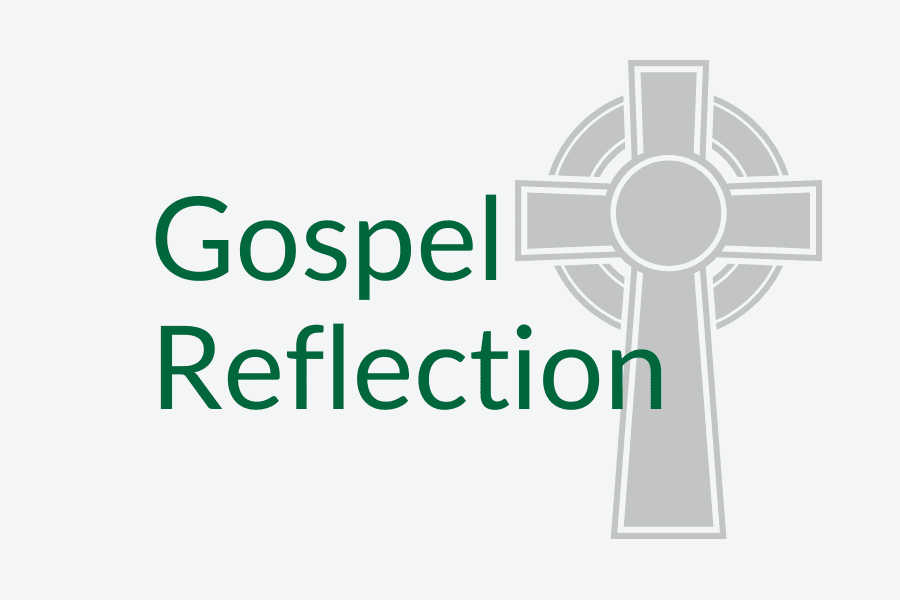Gospel Reflection March 16 – Kim VanHuffel
Sunday, March 16
Second Sunday of Lent
Luke 9:28b-36
Gospel:
Jesus took Peter, John, and James
and went up the mountain to pray.
While he was praying his face changed in appearance
and his clothing became dazzling white.
And behold, two men were conversing with him, Moses and Elijah,
who appeared in glory and spoke of his exodus
that he was going to accomplish in Jerusalem.
Peter and his companions had been overcome by sleep,
but becoming fully awake,
they saw his glory and the two men standing with him.
As they were about to part from him, Peter said to Jesus,
“Master, it is good that we are here;
let us make three tents,
one for you, one for Moses, and one for Elijah.”
But he did not know what he was saying.
While he was still speaking,
a cloud came and cast a shadow over them,
and they became frightened when they entered the cloud.
Then from the cloud came a voice that said,
“This is my chosen Son; listen to him.”
After the voice had spoken, Jesus was found alone.
They fell silent and did not at that time
tell anyone what they had seen.
Gospel Reflection:
Some people might say that this Gospel passage is a “myth,” a made-up story to help us understand who Jesus is. However, it is not just Luke who tells us of the transfiguration. Matthew and Mark describe this scene similarly. And Peter himself, in 2 Peter 1:16-18, tells us about his experience. “We did not follow cleverly devised myths when we made known to you the power and coming of our Lord Jesus Christ, but we had been eyewitnesses of his majesty. For he received honor and glory from God the Father when that unique declaration came to him from the majestic glory [cloud], ‘This is my Son, my beloved, with whom I am well pleased.’ We ourselves heard this voice come from heaven while we were with him on the holy mountain.”
Not a myth, a first hand account. So, moving past myth, what are we supposed to take from the transfiguration? God effectively takes the blinders off the three apostles and lets them see Jesus as he truly is. While Jesus is seen in his full glory, they hear the message from God — “listen to him.” Since the Bible is the living Word of God, this message is not only for the apostles, but for all of us now.
Maybe this Lent, as we pray more, we could practice lectio divina with the Gospel of Luke, utilizing passages where Jesus is speaking to his disciples. Read a short passage aloud. Then meditate upon whatever speaks to you in the passage. Then pray to God to understand what it might mean in your life. Then continue to contemplate it, rest in it, throughout the remainder of your day — coming back to the phrase in the passage that stuck out to you. Then we can “listen to him” as God speaks to us in the many ways we might hear his voice — through our conscience, a small whisper, or through events or people we might encounter during the day. Finally, we need to put into action whatever we hear from God. That might mean tweaking our habits, or altering the way we think about or speak about something, or changing the way we treat others — all with the goal of becoming closer to God, while loving ourselves and our neighbor.
May God bless the remainder of your Lent and make it fruitful.
Kim VanHuffel
Pastoral Associate

